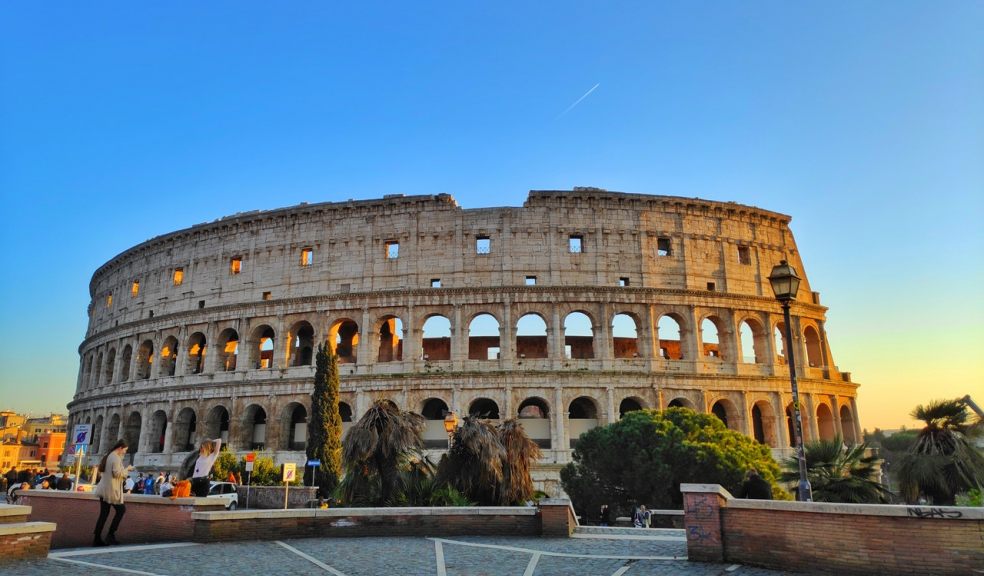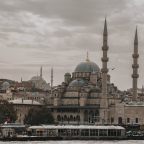
How to prepare for the next holiday after Europe open borders
Where to go and how to prepare for the holidays after the borders open is the question you ask. We will help you with that.
Travel will take place only under “specific new rules”.
Each country will have its own rules that will have to be respected, but ours will not prevent us from planning our next trip to one of the beautiful European capitals.
Compare your options diligently and be prepared to travel at less desirable times to get a better price. It’s also worth putting careful thought into your destination of choice.
Furthermore, there will be a lot of demand for already popular destinations such as Bracelona, Amsterdam, Rome or Paris. If you visit Barcelona we draw your attention to the fact that you can bcn travel can be much simpler and more interesting. And for more interesting ideas for your next holiday you can check out https://avidvoyagers.com/.
The travel market is very fluid at the moment, so trying to get the best possible deal for a specific time can be tricky. However, some things will still be the same.
Exchanging travel money to Euros or Dollars now, setting hotel and flight budgets or even beginning to budget for your holiday spend would be a great use of time and an incentive to look ahead to your next getaway.
There are still great deals to be had when booking in the future, so check out all the sites and even visit the carriers' websites directly as you could save you hundreds off of your next venture.”
In short, there is still lots that holidaymakers can be doing to prepare for their 2020 holidays. Just make sure that all holidays booked during this period are protected in case you can't travel then, but there are still great deals to be had, so spend time doing your research and get ready to travel again!
How certain countries will continue to function once the borders are opened:
Italy takes it slow
Bookstores, laundries, stationery stores and children's clothing stores were among the businesses allowed to reopen in Italy.
The list of permitted activities was expanded to include forestry, computer manufacturing, landscape care and maintenance, hydraulic works and paper and cardboard production.
The changes are a preview of wider openings due to take place during "phase 2" of the three-phase plan to bring Italy back to normal, which will start sometime after May 3.
Some areas of the country have decided to delay lifting restrictions.
In Lombardy and Veneto, the regions hardest hit by the pandemic, bookstores and stationery stores are not allowed to reopen. In Lazio, the region which includes Rome, bookstores can open from April 20.
Any business that does reopen must respect rules designed to limit the spread of coronavirus: making hand sanitizer available, enforcing the use of masks in enclosed spaces, and using disposable gloves to handle food and drink.
The government decree also mandated a series of hygiene measures including handwashing, avoiding hugs and handshakes, keeping a distance of at least a meter from other people, sneezing and coughing into a handkerchief and cleaning surfaces with chlorine or alcohol sanitizers.
Madrid
Many non-essential employees across Spain returned to work after the Easter weekend, with 300,000 estimated to have gone back in the Madrid region.
Construction and other industries have been allowed to restart, but non-essential stores, bars and restaurants remain closed.
Spanish police are distributing more than 10 million masks to commuters at metro, bus and train stations.
Germany
Schools with hygiene plans in place will gradually reopen from May 4, with priority given to primary and secondary pupils in final years, while daycare centres will remain shut. Other social distancing measures, along with bans on large public events, will remain in place.
Efforts must continue, and citizens needed to remain disciplined. The numbers of infections were decreasing.
Denmark
Denmark is speeding up its decision to lift Covid-19 restrictions after the latest numbers of new cases proved lower than expected.
The government had previously extended a ban on gatherings of more than 10 people until May 10 and said churches, cinemas and shopping centres would remain closed. All festivals and large gatherings have been banned until August.
The nation of 5.8 million was among the first European to close its borders on March 13. In that same week, it closed schools, cafes and shops, as well as banning gatherings of more than 10 people and visits to hospitals.
Czech shops reopen
The Czech Republic moved swiftly to impose restrictions on travel, ban large events and close non-essential businesses after declaring a state of emergency on March 12. Unusually in Europe, it also required its 10.7 million people to cover their faces when outside the home from 19 March.
Those strict containment efforts appear to be paying off, as the government has now announced it is extending its relaxation of some restrictions.
The Czech government said on April 6 that people would be able to exercise alone without masks and that shops such as hardware and bicycle stores would be allowed to re-open. Outdoor sports facilities have also reopened.
From May 25, restaurants, snack bars, pubs and wine shops offering goods for immediate consumption will be allowed to open if they have an outdoor patio or sell takeout food and drink. Museums, galleries and zoos can open their outdoor exhibits from the same date, and hair and beauty salons will also be allowed to reopen.
From June 8, all retail stores, including those in shopping centres, all restaurants, hotels and other accommodation will be allowed to reopen.
Essential travel outside the Czech Republic is now also allowed.
Things you may need to do before you go include:
- check your passport
- arrange travel insurance - you will find essential information about Schengen Visa insurance here.
- check you have the right driving documents
- organise pet travel - contact your vet at least 4 months before you go
There are more things to do if you’re travelling for business. For example, going to meetings and conferences, providing services (even with a charity), and touring art or music.
We wish you a nice stay for whichever country you decide to spend your holidays there. Take care of yourself and others.




















